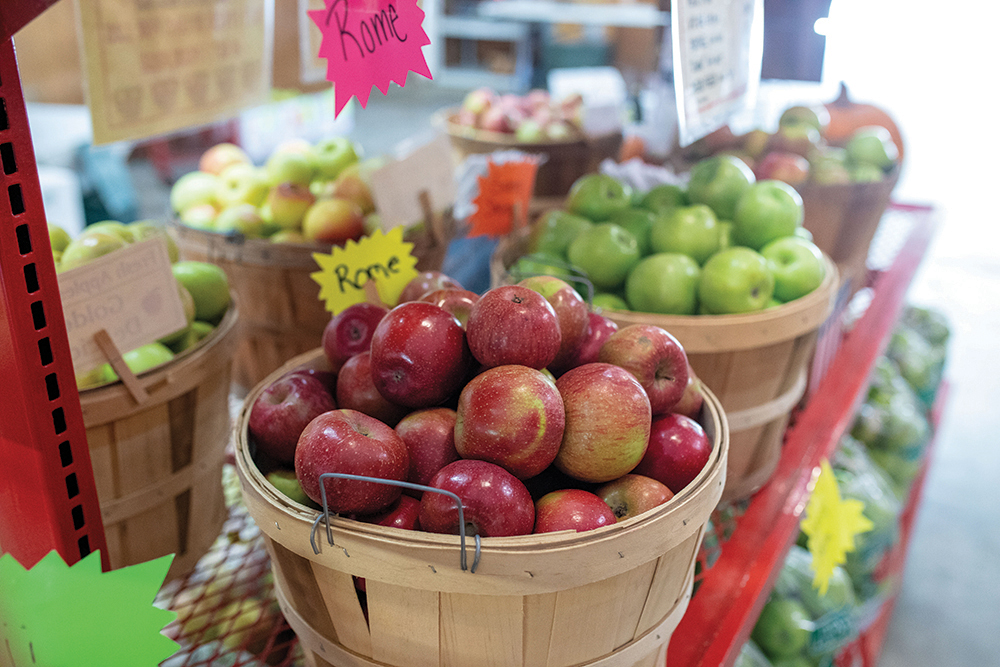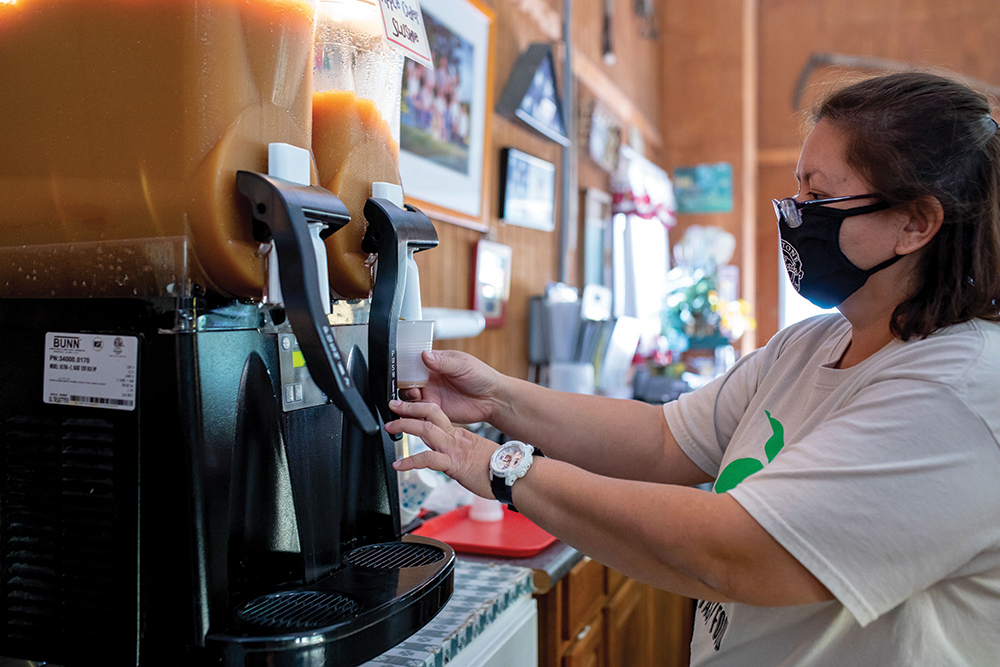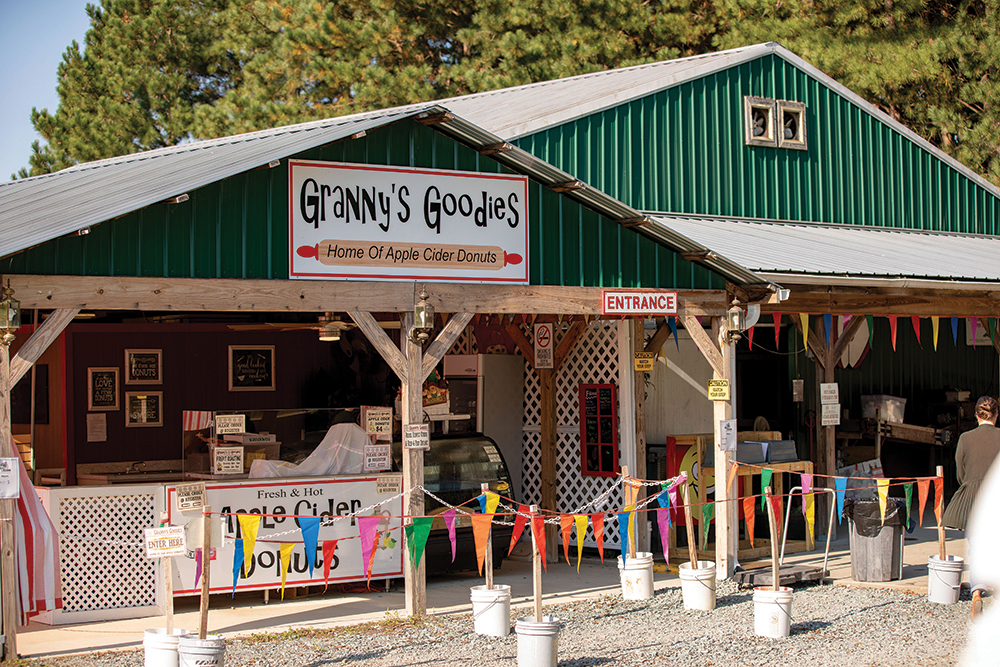Millstone Creek Orchards puts a cool spin on apple cider at its Ramseur, N.C. farm.
by Debbie Moose | photography by Bert Vanderveen
Making good apple cider isn’t just a matter of tossing a bunch of fruit together in a press. Like blending a fine wine, the process starts with knowing your apples—which ones are sweet, which are tart, which have body—and combining them in the right balance. The folks at Millstone Creek Orchards have mastered this art, and their apple cider draws folks from all over the state.
“The type of apples we use will change, but the recipe is the same. Three kinds of apples: the sweetest available, the sourest available and a hearty apple with a thicker skin to give balance to the texture and flavor,” says Beverly Mooney. She owns the orchards, which are in Ramseur, N.C., just outside of Asheboro, about an hour from downtown Raleigh. Her favorite cider combo blends Golden Delicious for sweetness, Granny Smith for tartness and the medium-sweet Fuji for body.
In the fall at Mooney’s 84-acre farm, 100 bushels of apples might go into the hydraulic press each day, becoming about 250 gallons of cider in roughly three hours. It sounds like a lot of cider, but it goes fast—to cider fans and inside the farm’s popular apple cider slushies.
Mooney’s late father, Byrd Isom, started the orchard in 2001 and opened it to the public in 2004. He’d go cider-tasting in the mountains, gleaning knowledge to develop his version, including the idea to use a slushie machine to turn cider into a frozen treat. When most people think of slushie machines, they picture neon-colored liquid on rotation at a convenience store. And yes, it’s the same mechanism, but that’s where the similarity ends.
“We don’t add any sugar to the cider, and no ice to the slushies. We just freeze the cider on its own,” says Mooney. “When parents find out there’s nothing else in there, they love it as a healthy snack for their kids.”
In peak season, late August through October, Mooney keeps four machines going at her farm store, making 24 gallons at a time. She sets some aside to freeze too, so visitors can enjoy the cider pretty much any time of year.
During a typical year, the farm will sell about 3,000 gallons of cider, in either liquid or frozen form. Slushies are always on the menu. Millstone Creek’s cider is unpasteurized, which means it must be kept refrigerated or frozen. That also gives it a unique flavor.
 “What I like about the apple cider from Beverly is that it is fresh, fresh, fresh and really tastes like you just bit into an apple. When heated, it becomes even more delicious,” says Terrie Moffitt of Durham, who buys more than 20 gallons for an annual party and to freeze for gifts.
“What I like about the apple cider from Beverly is that it is fresh, fresh, fresh and really tastes like you just bit into an apple. When heated, it becomes even more delicious,” says Terrie Moffitt of Durham, who buys more than 20 gallons for an annual party and to freeze for gifts.
Besides apples, the farm grows peaches, blueberries, blackberries and gourds, and offers family activities like fishing in the pond or picking fruit. Its farm stand offers produce and baked goods alongside their slushies, and live music shows invite visitors to spread out a blanket and stay awhile.
Like sommeliers describing a cabernet, clerks at the farm stand can tell visitors which apples are in the cider or slushie they’re getting during a particular week. The most discerning of customers call to find out when the farm is pressing cider using their favorite apple, so that they can stock up.
“We have some really passionate cider guests who swear they can tell the difference,” says Mooney. “They recognize a certain apple from their childhood and it takes them back.”



